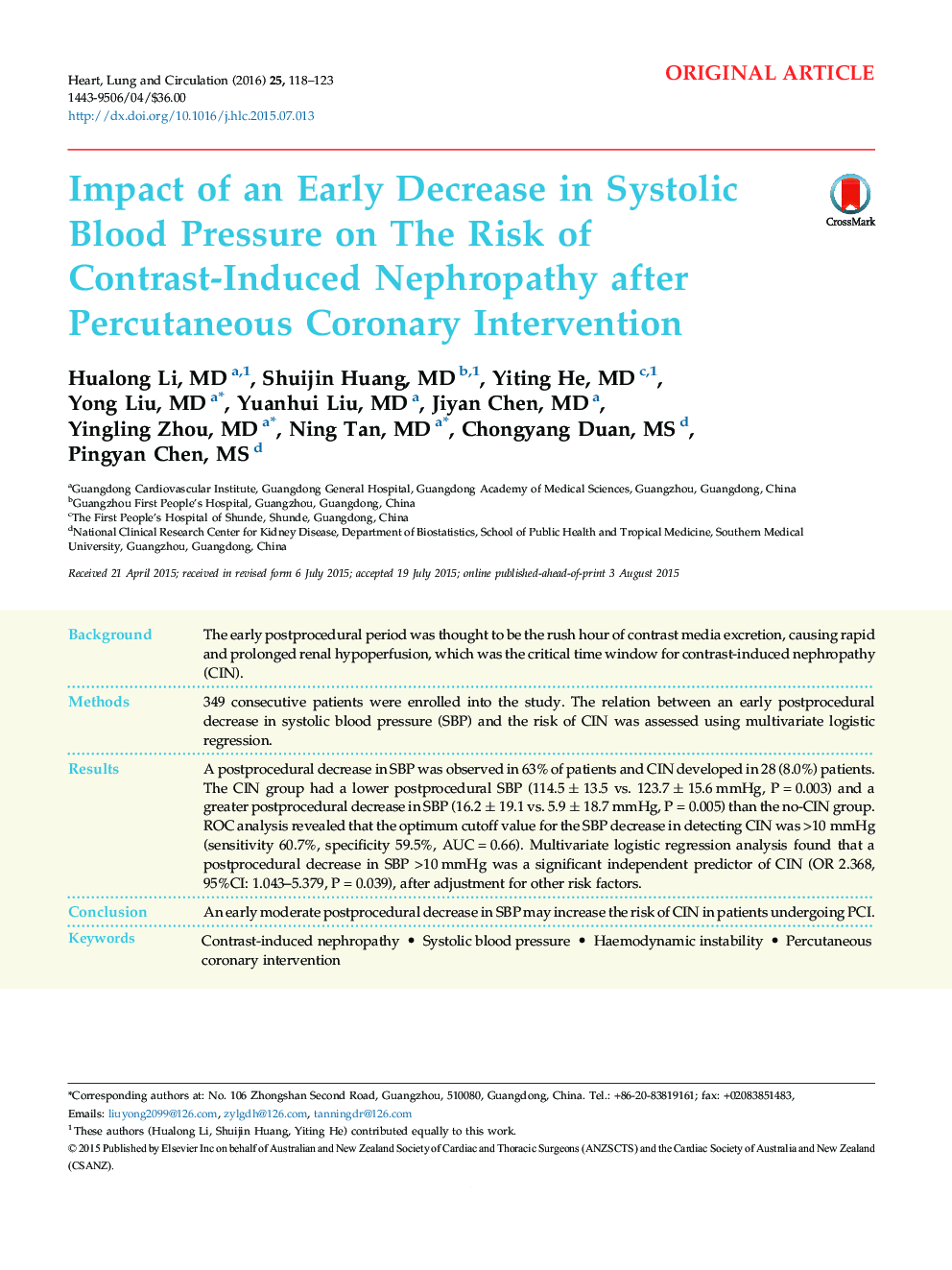| کد مقاله | کد نشریه | سال انتشار | مقاله انگلیسی | نسخه تمام متن |
|---|---|---|---|---|
| 2916879 | 1175649 | 2016 | 6 صفحه PDF | دانلود رایگان |
BackgroundThe early postprocedural period was thought to be the rush hour of contrast media excretion, causing rapid and prolonged renal hypoperfusion, which was the critical time window for contrast-induced nephropathy (CIN).Methods349 consecutive patients were enrolled into the study. The relation between an early postprocedural decrease in systolic blood pressure (SBP) and the risk of CIN was assessed using multivariate logistic regression.ResultsA postprocedural decrease in SBP was observed in 63% of patients and CIN developed in 28 (8.0%) patients. The CIN group had a lower postprocedural SBP (114.5 ± 13.5 vs. 123.7 ± 15.6 mmHg, P = 0.003) and a greater postprocedural decrease in SBP (16.2 ± 19.1 vs. 5.9 ± 18.7 mmHg, P = 0.005) than the no-CIN group. ROC analysis revealed that the optimum cutoff value for the SBP decrease in detecting CIN was >10 mmHg (sensitivity 60.7%, specificity 59.5%, AUC = 0.66). Multivariate logistic regression analysis found that a postprocedural decrease in SBP >10 mmHg was a significant independent predictor of CIN (OR 2.368, 95%CI: 1.043–5.379, P = 0.039), after adjustment for other risk factors.ConclusionAn early moderate postprocedural decrease in SBP may increase the risk of CIN in patients undergoing PCI.
Journal: Heart, Lung and Circulation - Volume 25, Issue 2, February 2016, Pages 118–123
